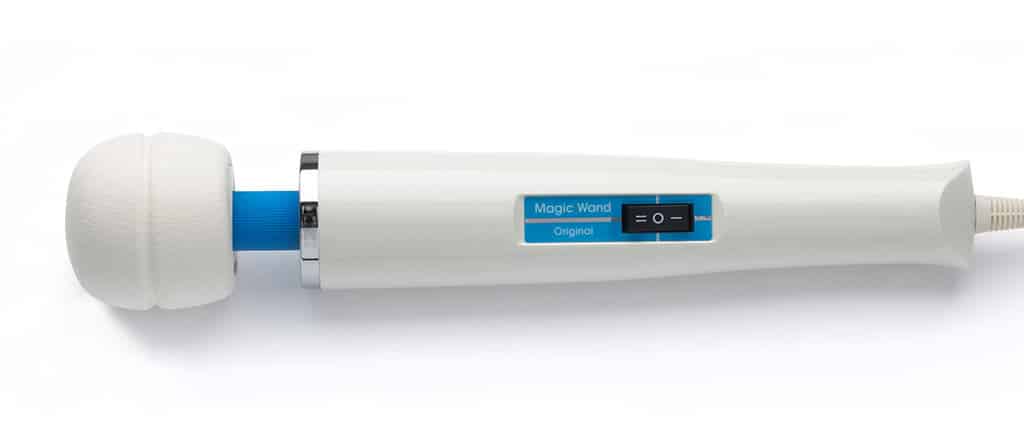Is the ‘official’ Magic Wand podcast series a genuine documentary or pure marketing?

A while ago some social japester on social media quipped that millennial dating is basically recommending podcasts to each other until one of you dies. The latest potential conversation-extender is a documentary-style mini-series about the Magic Wand vibrator.
The Making Magic podcast has been created by journalist and author Kate Sloan, who specializes in writing about sex. Although it’s presented as a journalistic documentary podcast, it is produced by Vibratex: the California-based company that is the sole importer of the Magic Wand to the US.
The show primarily exists as marketing for Vibratex and the Magic Wand, which has spawned many imitators and become a sextech genre beyond any single brand. However, the device’s place in sex toy lore does make it an interesting subject for probing. Indeed, we published our own history of the Magic Wand, noting that the clit-focused device was perhaps “the most iconic sex toy”.
Sloan, and everyone she interviews for the first episode of the podcast, seems to agree. The episode is basically a 25-minute run-down of how amazing and iconic the Magic Wand is. We hear that there are “wand fanatics, wand evangelists, a legion of true believers in the Magic Wand.” After a while, the tone goes beyond something comparable to people talking about their favorite breakfast cereal, and approaches something cultish.
Still, as we acknowledged in our 2022 historical run-down, the Magic Wand is a “timeless classic”, so the fervency we hear in the podcast can’t be put down to pure on-brand marketing. Sloan’s interviewees include vibrator museum curator Carol Queen, plus academic and sextech author Hallie Lieberman. Perhaps most importantly though, the general enthusiasm for Magic Wands feels largely genuine.
What’s more interesting than the relentless praise for the Magic Wand, however, is the topic of clitoral attention it provokes. Sloan and her interviewees discuss the dissonance between screen portrayal of sex, which tends to ignore clitoral stimulation and depicts penetration as the most common route to orgasms.
Circumvent Big Tech's Censorship! Never miss another post!
Subscribe to our notifications!
Article continues below

In the podcast, sex psychologist De Laurie Mintz discusses the gender-based ‘orgasm gap’ linked to this, saying: “We know most women don’t orgasm from intercourse despite the myths and the misinformation and the images, and we know that orgasm rates increase with clitoral stimulation.”
It is suggested, of course, that one answer to addressing the orgasm gap is for more people to use vibrator devices like, say, the Magic Wand.
Tee-ing up future episodes, Sloan says she will delve into the Magic Wand’s history, plus issues such as sextech in porn and among the queer and trans community. There is, then, potential for the series to go deeper than superlatives.
The Magic Wand does indeed have an interesting past, having been developed by Hitachi in the 1960s and covertly marketed as a “massager”. We’re also promised a delve into the fascinating past of trailblazing sex educator Betty Dodson, who was born in 1929.

Investing in the podcast could turn out to be a smart move for Vibratex. Advertising and marketing can hit harder when presented similarly to journalism, and with a respected voice like Sloan at the helm. Journalism-style brand-produced podcasts are utilized by many companies, from eBay to McDonald’s to ZipRecruiter to Pornhub, and with sextech products becoming less taboo, perhaps it’s not so surprising to see the Magic Wand hoping to create similar buzz.
Indeed, the series has already garnered coverage in mainstream titles.
We eagerly await the eight-part documentary podcast series about the evolution of the Viballdo (we’re kidding, the last we heard the company making the device was for sale).






